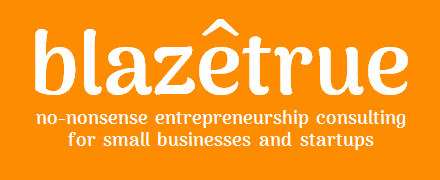



Prince Peter 25th May 2025 updated.
Some important questions about business and entrepreneurship asked are too in-frequently. Here are some of them, with my subjective answers.
Customer Is King- so can I never contradict my customer?

Customer is not King. Or Queen.
Specifically in the context of the oft repeated allied statement Customer is always right
, let there be clarity: often enough the customer may be just plain wrong.
And when that happens it is your duty as a business owner to take on a consultative role and guide the customer towards the right choice with your expertise and knowledge. So when your expertise tells you that the client is wrong, definitely contradict!
This will be especially useful to the client because the best business owners are subject matter authorities with deep expertise in their field of business. And in the vast majority of situations the business owner has greater access to knowledge about the services, products and options in their business category than the customer.
For example, if a customer eats 3 meals and experiences 5 dishes a day, the restaurateur may have overseen the serving of 3,000 meals and perhaps cooked 50 dishes that very day. If a customer experiences 2 pregnancies in an entire lifetime, the Obstetrician may have overseen 200 in a single year. If a customer rewrites her resume 2 times during a year, the resume writer business owner may have created 200 resumes in the same time span.
For the customer the business service or product is usually a small part of their life; for the committed business owner it may be their whole life. Who do you think is likely to know more?
Whether as a business owner you are suggesting a bone restorative therapy or fitting a bra or suggesting a business strategy or cooking a meal, you may be better placed to offer a superior option than the customer's first choice.
In fact, industries where customers are not being offered better choices often enough than their initial choice are industries that are ready for a shake-up. Those are industries where the customer is being ill-served and needs entrepreneurs who can offer better, more informed choices that enhance the customer's life.
So, is the business owner the King?
Absolutely not.
The best business relationships are collaborative partnerships where the business works together with the customers to build mutual value.
It is pathetic that so many business owners have failed to build the subject matter authority and more importantly the ethical strength that is required to openly offer the client a better option.
An inaccurate, inane slogan such as Customer is King is required is because of the millions of entrepreneurs and businesses who have failed their customers.
They failed their customers by up-selling products the customer did not need, by guiding the customers towards useless services, by dishonestly assuming that the customer was not integral to their business, and by simply refusing to listen to the customer with deep respect.
Now, it is time to rewrite that story, because actually the Customer is King in a very real sense.
The Customer is King because the fundamental objective of any business is to offer value to the customer. That is why your business exists.
How you find you own path to do that is up to each individual business owner. And one of the best ways to achieve that is simply by using your expertise and knowledge to help the customer make a better choice.
This approach of course works only if you as the business owner are truly and fully committed to do what's best for your customer. If and when you do that, and the customer understands that you truly have her best interests in mind, why will she not want to be offered better options than her less informed first choice?

Do not.
Honestly and efficiently doing your job and offering the best that your business can to your customer is the best way to be a socially responsible business. If, after trying that, you still strongly feel that your business is not enough socially responsible
, please consider changing your business.
The concept of independent CSR divisions, within your business, that are empowered to implement CSR initiatives that have nothing to do with your core business are wrong-headed. It is as stupid as comical practices like Customer Week which I had mentioned in my article about the true meaning of customer.
If the purpose and result of your core business is not socially responsible, then from a social standpoint your business has no reason to exist. If you feel bad about that, you are not going to resolve that terrible vacuum by publishing pics of you offering biscuits and pencils to photogenic poor
children.
If you are already being socially responsible with your business by doing the best you can for your customers, and still want to do more because you feel that child malnutrition or equitable education are too important, then please do the following:
: Work directly in the field for at least a short time and build first-hand knowledge about your area of social interest.
: Use this new knowledge to identify how, and if, your technical expertise and skill set can make a real difference to the situation.
: Build a system as integrated with your core business as possible that also supports this new arena of activity.
: Implement a sustainable business model that does not depend only on grants and philanthropy. Then, let it roll.
: Avoid the urge to publicize your efforts as CSR
.
If you are unable or unwilling to achieve this through your business and still want to make a real difference to the situation
, then please hire a committed field expert who can try to accomplish your vision. Ideally pay for this in your personal capacity: why would you want to burden your business or its other stakeholders with your personal baggage?
But, if your primary intention was to publicize the CSR effort to gain traction for your business or yourself, you could do any of the following:
: Hire a Public Relations firm.
: Feel ashamed.

And female entrepreneurs should try out jockstraps?
Perhaps. But this is not an article about underwear or cross dressing: what I am positing is that it is essential for entrepreneurs and business owners like you to have experiences that force you to look at different perspectives.
And if you try to put yourself in a man's shoes (or a woman's bra) you are likely to understand that person - and your potential market - that much better.
Travel to a distant village, talk to people there, eat their food, and experience their life a little.
Sell some stuff on the beach or the streets of the nearest city. Learn how the experienced salespersons there use their craft. Also, try to experience their life a little.
Go to a slum
near your city or town. Talk to people there, look at their commerce, check out their complex organization and distribution systems, and experience their life a little.
Of course, if you already stay in a remote village or sell ice cream in Marina Beach or work at Dharavi, go elsewhere and try something else. But try something different and at least a little uncomfortable.
It will expand your mind, force you to grow and also change the way you look at your business and your market.
Muruganantham Arunachalam pumped goat's blood into his underpants to better understand menstruation before launching his revolutionary low-cost sanitary pads in India's rural market.
Mohandas Gandhi traveled by third class train across the length and breadth of his country to know and understand his market
before launching his socio-political entrepreneurship.
Venture out of your comfort zone and try out that different something. This week? This month? This year.

Because you are wrong and they are right.
Statistically, anyway. 90%+ of all business ventures fail within a few years. So even a bored monkey who picks out businesses at random will be more right about future failure than Warren Buffet or Rakesh Jhunjhunwala or Paul Graham have ever been about future business success.
Of course, in your particular case, perhaps they were right. Perhaps not. I don't know yet.
However, the value of a comment totally depends on exactly what and why it was said - not on whether you thought it was positive or negative.
What is said is substance.
Why it is said is context.
How it is said is manner.
If the substance and the context are right, then the statement is right. Do not ignore it just because you did not relish the manner of its expression.
What do you do if someone comes up to you and shouts You $%^% moron! You left your $%*# baby in the burning building.
Try to improve his vocabulary?
Log into LinkedIn or Twitter to complain about the negativity of people?
Or go and save your $%*# baby?
Your business is your baby. Get your priorities right.
The best, the most real answers to all important questions will always be the ones you find for yourself in your journey as an entrepreneur; but I do hope that my writing serves as additional signposts in your search for those answers.
Thanks again for your time and attention.
Signing off with my best wishes for your business venture,

P.S. each word you have read above is written by me, Prince Peter, and I take personal responsibility for all I have said.
